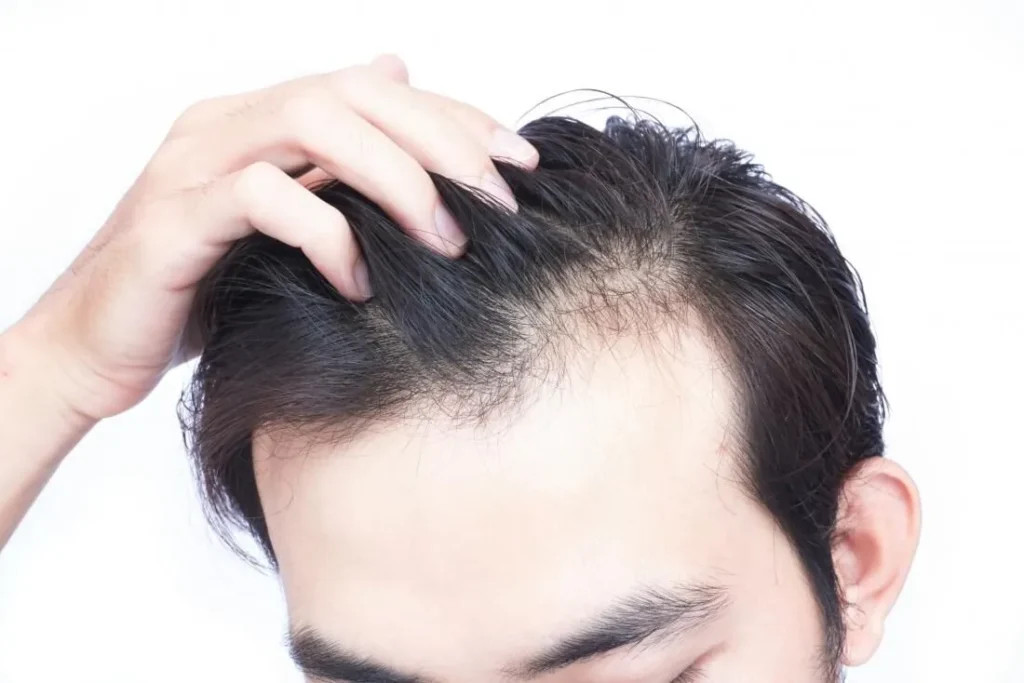Hair loss is a common concern for men, often caused by genetics, hormonal changes, stress, or health conditions. The good news is there are numerous treatments available to slow hair loss, encourage regrowth, or restore hair density. Here’s a comprehensive guide to the most effective hair loss treatments for men.
1. Medical Treatments
a. Minoxidil (Rogaine)
Minoxidil is a topical solution or foam approved by the FDA for male pattern baldness. It stimulates hair follicles, prolongs the growth phase, and is most effective for the crown area.
b. Finasteride (Propecia)
Finasteride is an oral medication that reduces DHT (dihydrotestosterone), a hormone linked to hair follicle shrinkage. It’s highly effective for male pattern baldness but requires long-term commitment.
c. Dutasteride
Similar to finasteride, dutasteride inhibits DHT but is often used for more severe hair loss cases. It may be recommended by doctors as an off-label treatment.
d. Ketoconazole Shampoo
Medicated shampoos containing ketoconazole combat dandruff and inflammation, which can contribute to hair thinning.
2. Non-Surgical Therapies
a. Platelet-Rich Plasma (PRP) Therapy
PRP involves injecting platelet-rich plasma into the scalp to stimulate inactive hair follicles and promote regrowth. It’s a popular treatment for early-stage hair loss.
b. Low-Level Laser Therapy (LLLT)
Laser devices, such as combs or caps, deliver light to the scalp, increasing blood flow and stimulating hair follicles. It’s painless and can be used at home.
3. Hair Restoration Surgery
a. Hair Transplant Surgery
Techniques like Follicular Unit Transplantation (FUT) and Follicular Unit Extraction (FUE) involve relocating healthy hair follicles from one area of the scalp to bald areas. It’s a permanent solution for advanced hair loss.
4. Lifestyle and Nutritional Changes
a. Balanced Diet
A diet rich in protein, iron, zinc, and vitamins (D and E) supports healthy hair growth. Foods like eggs, spinach, nuts, and fatty fish are excellent for hair health.
b. Supplements
Biotin, collagen, and omega-3 fatty acids can strengthen hair. Vitamin D supplementation is particularly important if you have a deficiency.
c. Stress Management
Chronic stress can lead to hair loss (telogen effluvium). Activities like yoga, meditation, and regular exercise can help reduce stress and its effects on hair.
5. Natural and Holistic Remedies
a. Scalp Massages
Using essential oils like rosemary or peppermint during scalp massages can stimulate hair growth and improve scalp health.
b. Onion Juice
Packed with sulfur, onion juice is a natural remedy that may enhance circulation to the scalp and stimulate hair follicles.
c. Herbal Remedies
Herbs like saw palmetto and ginseng are known for their DHT-blocking properties, which can slow hair loss.
6. Professional Guidance
a. Dermatologist Consultation
A dermatologist or trichologist can diagnose the underlying cause of hair loss and recommend personalized treatments.
b. NAET for Hair Loss
Nambudripad’s Allergy Elimination Techniques (NAET) can address hair loss caused by allergies or sensitivities. This energy-based method identifies and eliminates triggers contributing to hair issues.
7. Preventive Measures
- Avoid Harsh Treatments: Minimize the use of heat-styling tools, tight hairstyles, and harsh chemical treatments.
- Gentle Hair Care: Use sulfate-free shampoos and conditioners to maintain scalp health.
- Protect from Sun: Excessive sun exposure can damage your hair and scalp, so use hats or UV-protectant sprays.
Key Takeaways
Hair loss in men can be addressed effectively with a combination of medical treatments, lifestyle changes, and professional care. Early intervention is crucial to achieving the best results.
If you’re exploring holistic solutions, The NAET Clinic offers non-invasive treatments for hair loss tailored to your unique needs. Let us help you restore your hair naturally and confidently!


